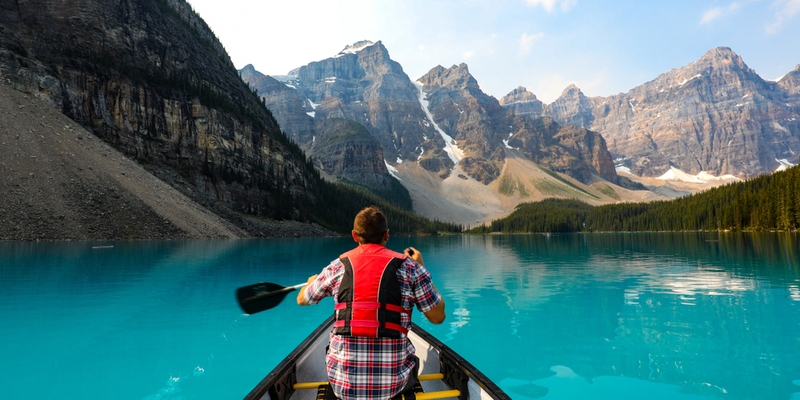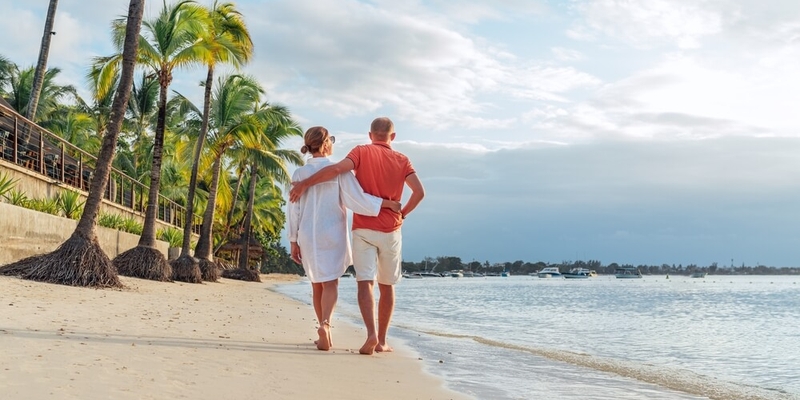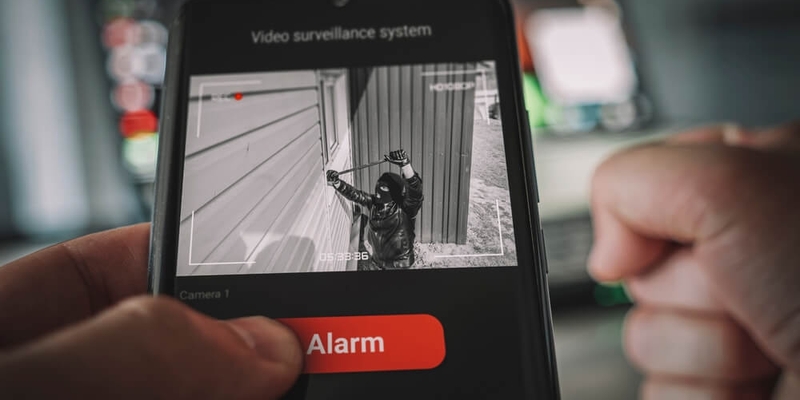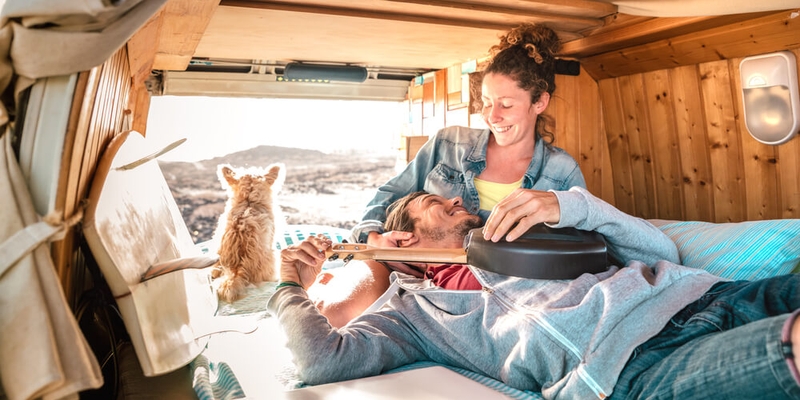
If you are not redirected within 30 seconds, please click here to continue.
Samedi: 10h – 16h HAE

If you are not redirected within 30 seconds, please click here to continue.
If you are not redirected within 30 seconds, please click here to continue.
Thinking of spending winter abroad? 9 questions for a newbie snowbird

Table of Contents
Are you planning to leave the country for a little rest and relaxation this winter? If so, you’re not alone; many retired Canadians flock to warmer abodes, leaving the snow and frigid temperatures behind.
According to a 2019 Statistics Canada report, nearly 300,000 to 375,000 Canadians travel to US or Mexico every winter. If you’re contemplating following them to warmer climes, you’ll find that heading south might be more complex than simply packing your bags and heading to the airport.
Here are some crucial questions you should ask yourself before taking a flight or getting in your car.
Do I need a travel visa?
Many Canadian snowbirds favour U.S. destinations during the winter — particularly Florida and Arizona. But if you’re not a U.S. resident but planning on staying there for a few months, you need to consider the limitations on the length of your stay. Even if you own property in the U.S., you can only stay for six months without a travel visa. If you do intend on staying for longer, rules vary greatly from country to country, so be sure to check out visa requirements before setting your sights on a destination.
Should I keep my car insured while I’m gone?
If you’re leaving your car at home for the months that you’re away, you can downgrade your insurance policy to stored or parked car insurance, or basic comprehensive coverage. That way, your car from damages related to garage flooding or theft, but you won’t have to pay as much in premiums as you normally would.
Even if you won’t be driving for a few months, it’s a bad idea to cancel your car insurance outright — insurance companies will flag any uninsured months as increased risk and raise your rates when you resume your policy.
Related: Moving abroad? Here’s how car insurance works
If you plan on driving to your destination, it’s also important to check in with your car insurance provider before you leave.
Some insurance companies have rules about how long a vehicle can be outside of the country, and you may be required to pay a supplemental premium to maintain your coverage. You’ll also want to review your policy’s liability coverage to confirm the limit is sufficient.
According to the Canadian Snowbird Association, it’s advised to up your liability coverage to a minimum of $2 million since claims in the U.S. can be costly. Also, keep in mind that you’ll want to take your car in for a tune-up before your trip to ensure it’s up for the cross-border journey.
Should I let my bank know that I’m leaving?
These days, financial institutions are more sophisticated when it comes to detecting fraud. However, just to be on the safe side, notify your bank and credit card company that you’ll be out of the country — the last thing you want is to have your cards or accounts frozen while you’re away. While you can usually resolve the situation with a call to customer service, some banks may require you to come into the branch in person, which could mean an expensive trip home.
How will I pay my bills while abroad?
It’s a good idea to set up automatic payments for utilities while away or use an online banking option. You don’t want to turn off your utilities completely, as an unheated home runs the risk of floods due to freezing and cracked pipes.
How can I protect my home from burglary while I’m gone?
Burglars prey on homes that look unoccupied, but with a few preemptive measures, you can deter them. In addition to getting a motion sensor porch light to ward off night-time thieves, consider installing an app-enabled lighting system in your home, so you can switch your lights on and off remotely, making it appear as if someone is home even if you’re miles away.
Before leaving, arrange to have your mail forwarded or collected by a friend or neighbour. Uncollected mail is a sure sign that no one is home, especially if it builds up over an extended period.
An unkept home is another sign that the owner isn’t home. So, you may also want to ask that same friend or neighbour to shovel your driveway or mow your lawn occasionally, or you can pay for a snow removal service. Not only will this not tip off any burglars, but it will also ensure that your driveway, walkway, and sidewalk are clear of snow and ice — after all, home insurance claims for slips and falls may only be covered if you’ve taken the necessary precautions to avoid potential injury.
Should I ask someone to house sit?
To maintain your coverage, some home insurance companies require you to have someone check in on your home at regular intervals while you’re away. Check with your insurance provider to see what they expect you to do.
In any case, leave a list of emergency contacts with your closest friends and family, including the Canadian consulate and your health care practitioner. And, of course, making sure they also have multiple ways to reach you in case of emergency.
Is my license expiring anytime soon?
You’ll want to check if any of your health card, driver’s license, license plate sticker, or passport are set to expire during the time you plan to be away and renew if necessary. Additionally, ensure that your credit cards, auto insurance, and home insurance policies are up to date, too.
What if my baggage is lost or stolen?
If you’re bringing expensive items like jewelry or technology along for the ride, consider taking out additional coverage through your home insurance in the event they’re lost or stolen. The same goes for your baggage when flying. Don’t forget to check that your snowbird travel insurance includes coverage for things like lost or stolen baggage and flight delays.
What if I get sick while I’m away?
Depending on which province you live in, your eligibility for health care could be in jeopardy if you’re gone too long. You must reside within your home province for a minimum of six months to qualify for coverage in most provinces. In Ontario, you can only be gone for a total of 212 days out of a 12-month period or you risk losing your residency coverage.
Provincial health care plans also only cover the bare minimum for American health care, and they may have daily spending caps that are far below what may be required. A hospital stay in the U.S. can cost thousands of dollars a day. That is why buying additional travel insurance is so crucial, no matter the duration of your trip.
Make sure your policy term covers the entirety of your stay and disclose any pre-existing medical conditions to your insurance provider so you don’t void your coverage. Remember that travel medical insurance is for emergencies only — you won’t be covered for routine checkups when abroad — and paying out of pocket will be costly.
So before leaving, visit your family doctor, dentist, and optometrist to make sure everything is okay. And while making rounds, ask your medical professionals for a detailed list of your prescriptions, including eyewear, if you need them. It will save you a lot of time and hassle should something happen while you are away.
In terms of price, travel insurance premiums for snowbirds can differ from one provider to the next. Compare quotes to find the lowest price for the coverage you need.
Don't waste time calling around for travel insurance
Use Rates.ca to shop around, and compare multiple quotes at the same time.
Finding the best travel insurance coverage has never been so easy!
Get money-saving tips in your inbox.
Stay on top of personal finance tips from our money experts!










